Affiliate links on Android Authority may earn us a commission. Learn more.
HONOR 10 vs OnePlus 6 vs the competition: Affordable flagships vs the best of the best
May 16, 2018
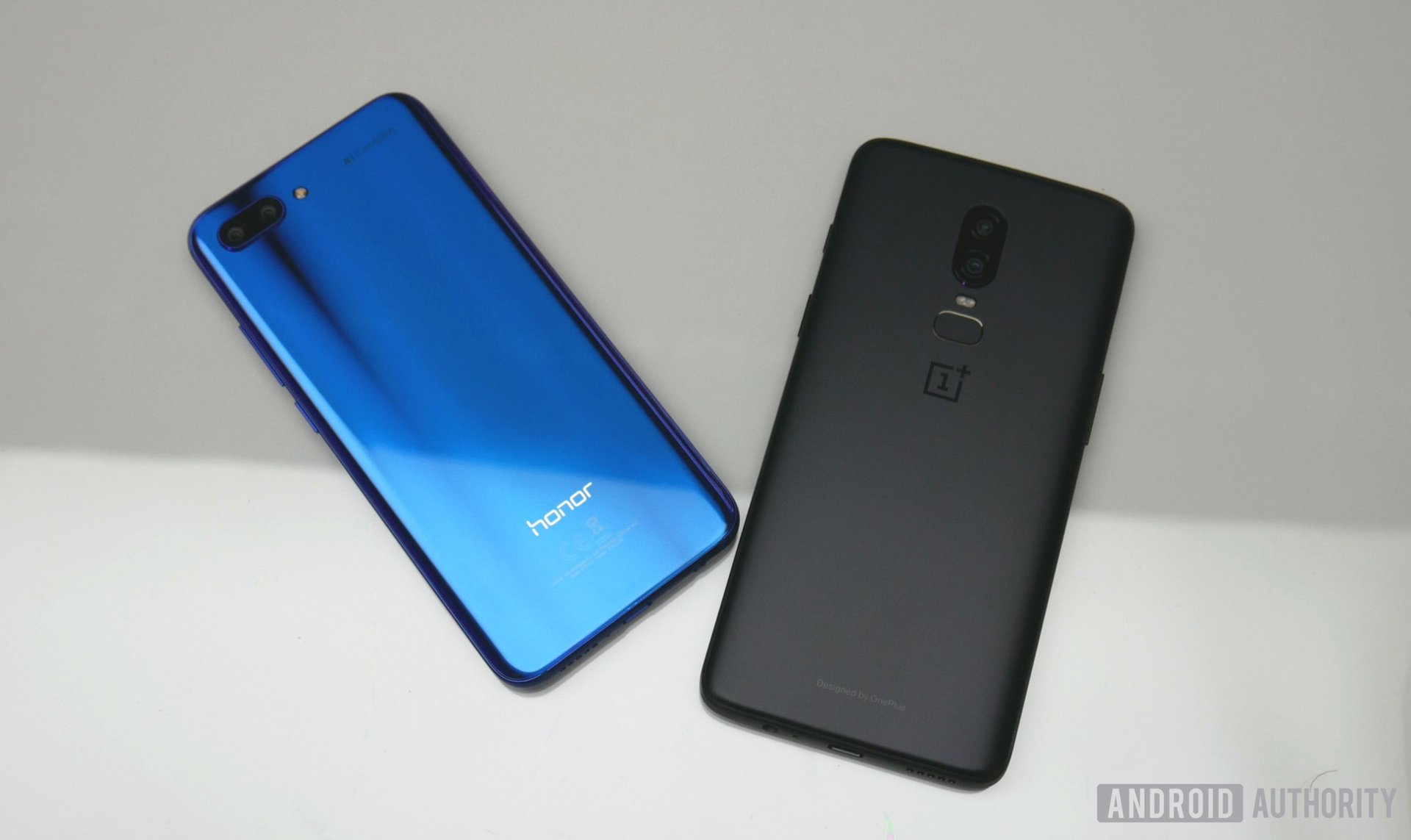
It used to be you had to spend a fortune to get a good smartphone. Over the years, however, that wallet-drying requirement fell to the wayside as brands like HONOR and OnePlus produced excellent smartphones without exorbitant price tags.
Their latest devices, the HONOR 10 and OnePlus 6, continue that trend of “affordable flagships,” but how do they compete against the higher-priced competition? We pit HONOR 10 and OnePlus 6 against the LG G7 ThinQ, Samsung Galaxy S9 Plus, and Google Pixel 2 XL.
Let’s begin with arguably the most controversial aspect of smartphones today: the notch. The HONOR 10, OnePlus 6, and G7 ThinQ feature notches at the top that allow for taller displays with awkward aspect ratios. The Galaxy S9 Plus and Pixel 2 XL don’t have the feature.
If you fall into the large camp of people who dislike the notch, the HONOR 10, OnePlus 6, and G7 ThinQ include the ability to “turn off” the notch. It’s still there, though.
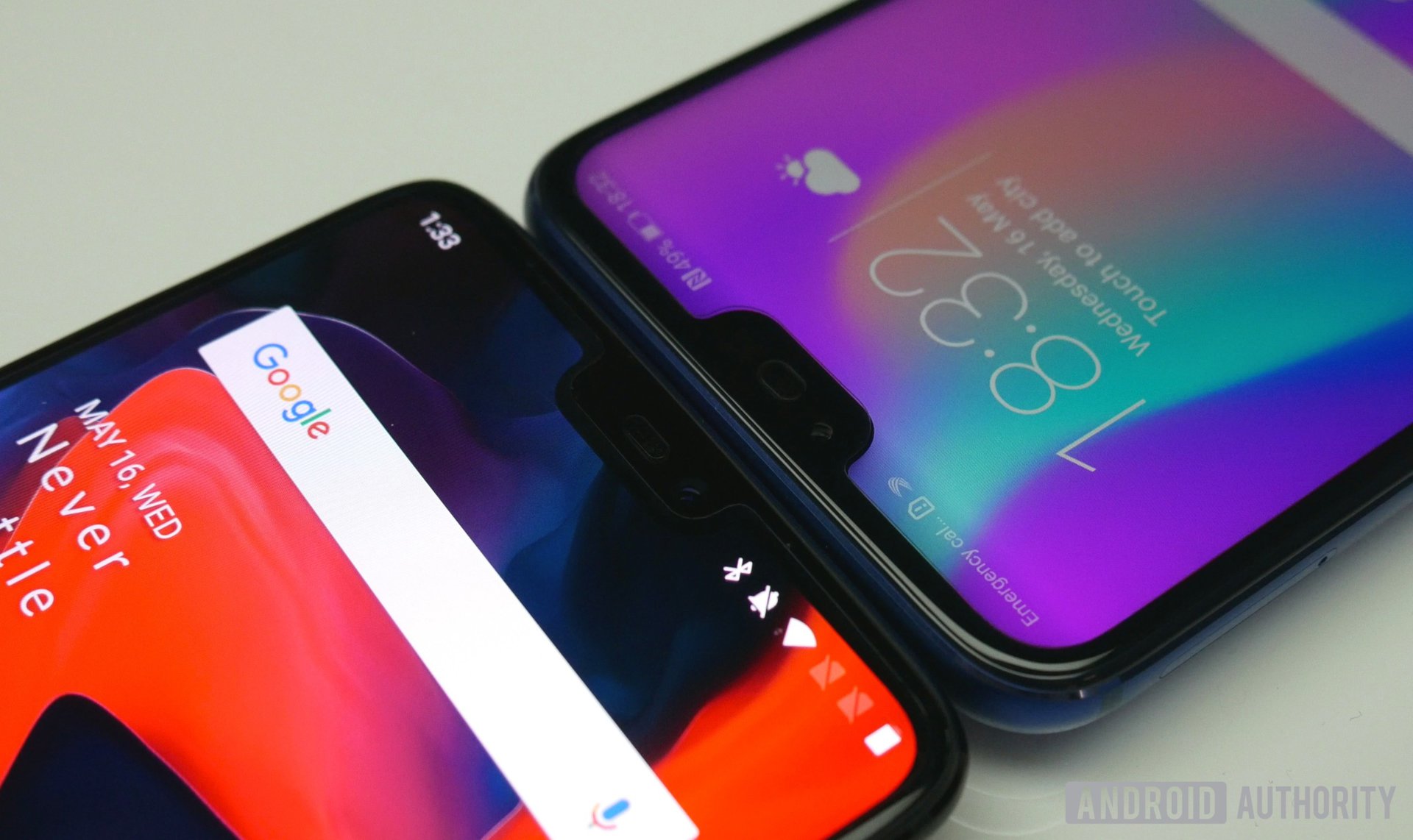
Your eyes might gravitate toward the notch, but most of the time, they will be on the actual display. Even on this front, there are key differences in size, display type, and resolution.
For those into VR, neither the HONOR 10 nor OnePlus 6 will fit the bill. Even with its Full HD+ display, the HONOR 10 has an LCD screen — a no-go for VR. The OnePlus 6’s display is AMOLED, which is better for VR, but the Full HD+ resolution does not provide enough pixels for your virtual adventures.
The G7 ThinQ’s display packs more than enough pixels, but it’s also of the LCD variety. That means the Galaxy S9 Plus and Pixel 2 XL are your only options in this comparison if you consume VR content, since they feature AMOLED displays with high resolutions.
| HONOR 10 | OnePlus 6 | LG G7 ThinQ | Samsung Galaxy S9 Plus | Google Pixel 2 XL | |
|---|---|---|---|---|---|
Display | HONOR 10 5.84-inch FullView LCD display 2,280 x 1,080 resolution 19:9 aspect ratio | OnePlus 6 6.28-inch AMOLED 2,280 x 1,080 resolution 19:9 aspect ratio | LG G7 ThinQ 6.1-inch LCD FullVision display 3,120 x 1,440 resolution 1,000-nit brightness 19.5:9 aspect ratio | Samsung Galaxy S9 Plus 6.2-inch Curved Super AMOLED 2,960 x 1,440 resolution 18.5:9 aspect ratio | Google Pixel 2 XL 6.0-inch P-OLED 2,880 x 1,440 resolution 18:9 aspect ratio |
SoC | HONOR 10 HiSilicon Kirin 970 | OnePlus 6 Qualcomm Snapdragon 845 | LG G7 ThinQ Qualcomm Snapdragon 845 | Samsung Galaxy S9 Plus U.S.: Qualcomm Snapdragon 845 Global: Samsung Exynos 9810 | Google Pixel 2 XL Qualcomm Snapdragon 835 |
GPU | HONOR 10 Mali G72 MP-12 | OnePlus 6 Adreno 630 | LG G7 ThinQ Adreno 630 | Samsung Galaxy S9 Plus Adreno 630 (Snapdragon) Mali G72 MP-18 9 (Exynos) | Google Pixel 2 XL Adreno 540 |
RAM | HONOR 10 4/6GB | OnePlus 6 6/8GB | LG G7 ThinQ 4/6GB | Samsung Galaxy S9 Plus 6GB | Google Pixel 2 XL 4GB |
Storage | HONOR 10 64/128GB | OnePlus 6 64/128/256GB | LG G7 ThinQ 64/128GB | Samsung Galaxy S9 Plus 64/128/256GB | Google Pixel 2 XL 64/128GB |
MicroSD | HONOR 10 No | OnePlus 6 No | LG G7 ThinQ Yes | Samsung Galaxy S9 Plus Yes | Google Pixel 2 XL No |
If you do not much care for VR or AR, think about whether you prefer LCD or AMOLED, notch or no notch, and high-resolution displays. None of these displays are bad by any means, so it really comes down to your preferences.
Moving to processors, the HONOR 10 features HUAWEI’s in-house Kirin 970 chipset. The OnePlus 6, G7 ThinQ, and Galaxy S9 Plus all feature the Snapdragon 845. The Pixel 2 XL makes do with the older Snapdragon 835.

HUAWEI and HONOR claimed the Kirin 970 bested the Snapdragon 835 and 845 in certain benchmarks, which is good for on-paper comparisons. In the real world, however, any of these five smartphones performs perform as you well as you could hope.
None of these phones are lacking in RAM, either. The OnePlus 6 in particular features up to 8GB of RAM. The HONOR 10 and G7 ThinQ feature either 4GB or 6GB of RAM, while the Galaxy S9 Plus and Pixel 2 XL feature 6GB and 4GB of RAM, respectively.
Storage options are similar across the board, as every phone in this comparison includes at least 64GB of built-in storage. If you are a microSD card fan, your only options here are the G7 ThinQ and Galaxy S9 Plus.
The NPU in the HONOR 10's Kirin 970 automatically detects the scene and adjusts the camera settings accordingly.
The camera system is usually an area of compromise in affordable smartphones. However, the HONOR 10 and OnePlus 6 seem to at least keep pace with the rest. Both phones feature two rear cameras and beefy selfie sensors.
The HONOR 10 is the only phone in this comparison to lack optical image stabilization (OIS), but it is also the only phone here to feature a monochrome sensor. The HONOR 10’s cameras also use the Kirin 970’s neural processing unit (NPU) to automatically detect the scene you are in and change the camera settings accordingly.
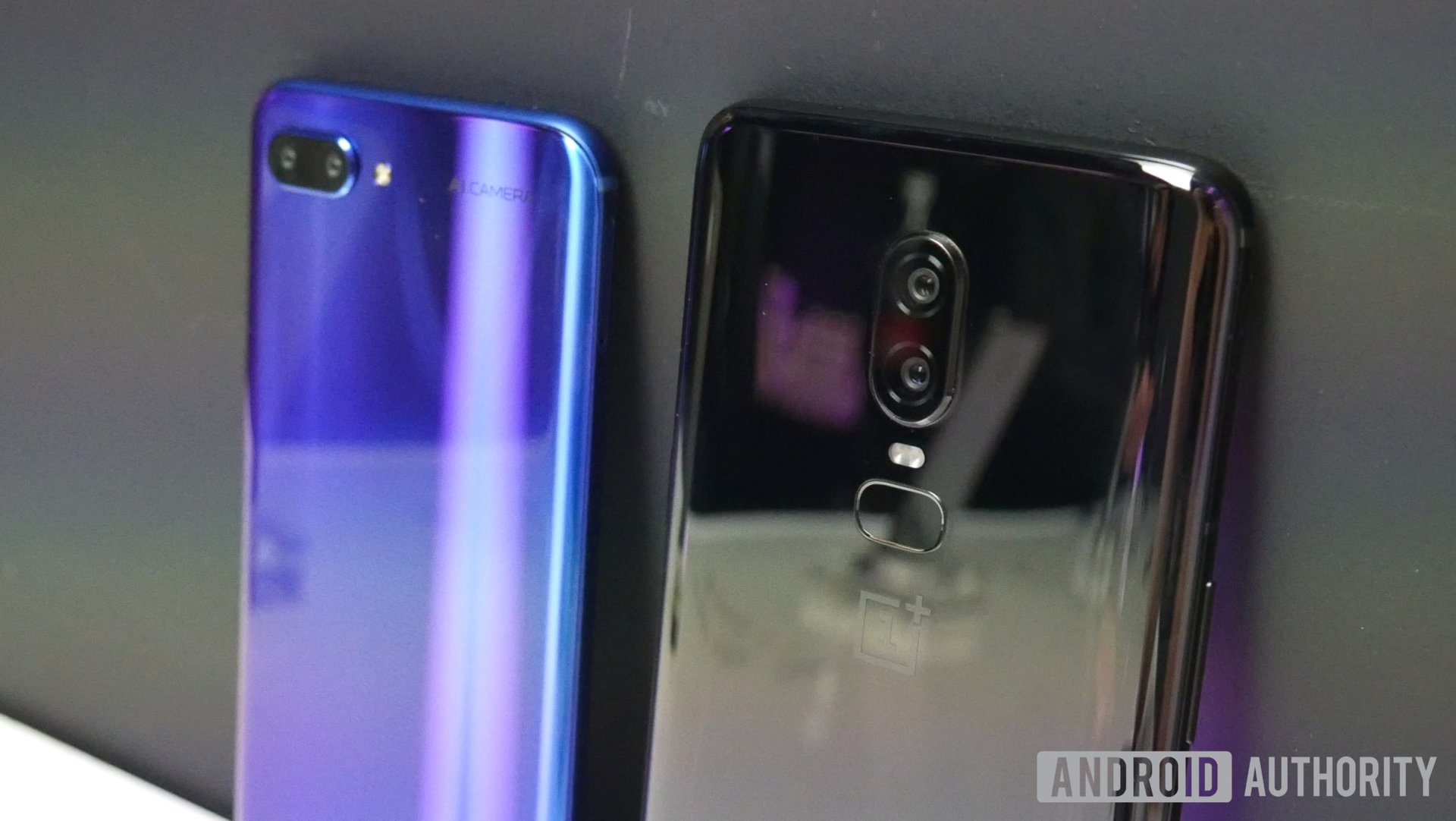
Not to be outdone, the OnePlus 6 uses large pixels in the primary sensor for better low-light pictures and (hopefully) improved portrait shots. The phone’s selfie camera also supports portrait mode, though the mode will arrive as a future software update.
The G7 ThinQ uses its secondary camera for wide-angle shots, while the Galaxy S9 Plus’ allows for 2X optical zoom. As a neat party trick, the Galaxy S9 Plus’ primary camera features two apertures, a first for any smartphone camera.
The Pixel 2 XL gets by with just one main camera, though it remains one of the best cameras on any smartphone today.
| HONOR 10 | OnePlus 6 | LG G7 ThinQ | Samsung Galaxy S9 Plus | Google Pixel 2 XL | |
|---|---|---|---|---|---|
Cameras | HONOR 10 Rear Main camera: 16MP, f/1.8 aperture Secondary camera: 24MP, f/1.8 aperture, monochrome Front 24MP, f/2.0 aperture | OnePlus 6 Rear Main camera: 16MP, f/1.7 aperture, 1.22μm pixels Secondary camera: 20MP, f/1.7 aperture, 1.0μm pixels Front 16MP, f/2.0 aperture, 1.0μm pixels | LG G7 ThinQ Rear Main camera: 16MP, f/1.6 aperture, 71-degree field of view Secondary camera: 16MP, f/1.9 aperture, 107-degree field of view Front 8MP, f/1.9 aperture | Samsung Galaxy S9 Plus Rear Main camera: 12MP, f/1.5 and f/2.4 apertures Secondary camera: 12MP, f/2.4 aperture, telephoto (2x optical zoom) Front 8MP, f/1.7 aperture | Google Pixel 2 XL Rear 12.2MP, f/1.8 aperture Front 8MP, f/2.4 aperture |
Audio | HONOR 10 Bottom-firing speaker 3.5mm headphone jack | OnePlus 6 Bottom-firing speaker Dirac HD Sound Dirac Power Sound 3.5mm headphone jack | LG G7 ThinQ Boombox Speaker DTS:X 3D Surround Sound Hi-Fi Quad DAC 3.5mm headphone jack | Samsung Galaxy S9 Plus 3.5mm headphone jack Stereo speakers Tuned by AKG | Google Pixel 2 XL No 3.5mm headphone jack Audio over USB Type-C Front stereo speakers |
Battery | HONOR 10 3,400mAh | OnePlus 6 3,300mAh | LG G7 ThinQ 3,000mAh | Samsung Galaxy S9 Plus 3,500mAh | Google Pixel 2 XL 3,520mAh |
IP Rating | HONOR 10 No | OnePlus 6 No | LG G7 ThinQ IP68 | Samsung Galaxy S9 Plus IP68 | Google Pixel 2 XL IP67 |
Software | HONOR 10 Android 8.1 Oreo EMUI 8.1 | OnePlus 6 Android 8.1 Oreo OxygenOS | LG G7 ThinQ Android 8.0 Oreo | Samsung Galaxy S9 Plus Android 8.0 Oreo | Google Pixel 2 XL Android 8.1 Oreo |
Dimensions and weight | HONOR 10 149.6 x 71.2 x 7.7mm 153g | OnePlus 6 155.7 x 75.4 x 7.75mm 177g | LG G7 ThinQ 153.2 x 71.9 x 7.9mm 162g | Samsung Galaxy S9 Plus 158.1 x 73.8 x 8.5mm 189g | Google Pixel 2 XL 157.9 x 76.7 x 7.9mm 175g |
Colors | HONOR 10 Phantom Blue, Phantom Green, Midnight Black, Glacier Grey | OnePlus 6 Mirror Black, Midnight Black, Silk White | LG G7 ThinQ Platinum Gray, Aurora Black, Moroccan Blue, Raspberry Rose | Samsung Galaxy S9 Plus Midnight Black, Coral Blue, Lilac Purple, Titanium Grey | Google Pixel 2 XL Just Black, Black & White |
Another area of compromise is with sound, where the HONOR 10 and OnePlus 6 unfortunately fall a bit short. Both feature bottom firing speakers, but at least each phone features a headphone jack.
The G7 ThinQ also sports a bottom firing speaker and headphone jack. The phone also includes a Hi-Fi DAC and uses its internals as a resonance chamber for louder sound when set on a flat surface.
The Galaxy S9 Plus and Pixel 2 XL are the only phones in this comparison with stereo speakers, though the Pixel puts both speakers on the front and omits the headphone jack. Meanwhile, the Galaxy S9 Plus keeps the trusty standard and uses its earpiece and bottom-firing speaker to push out sound.
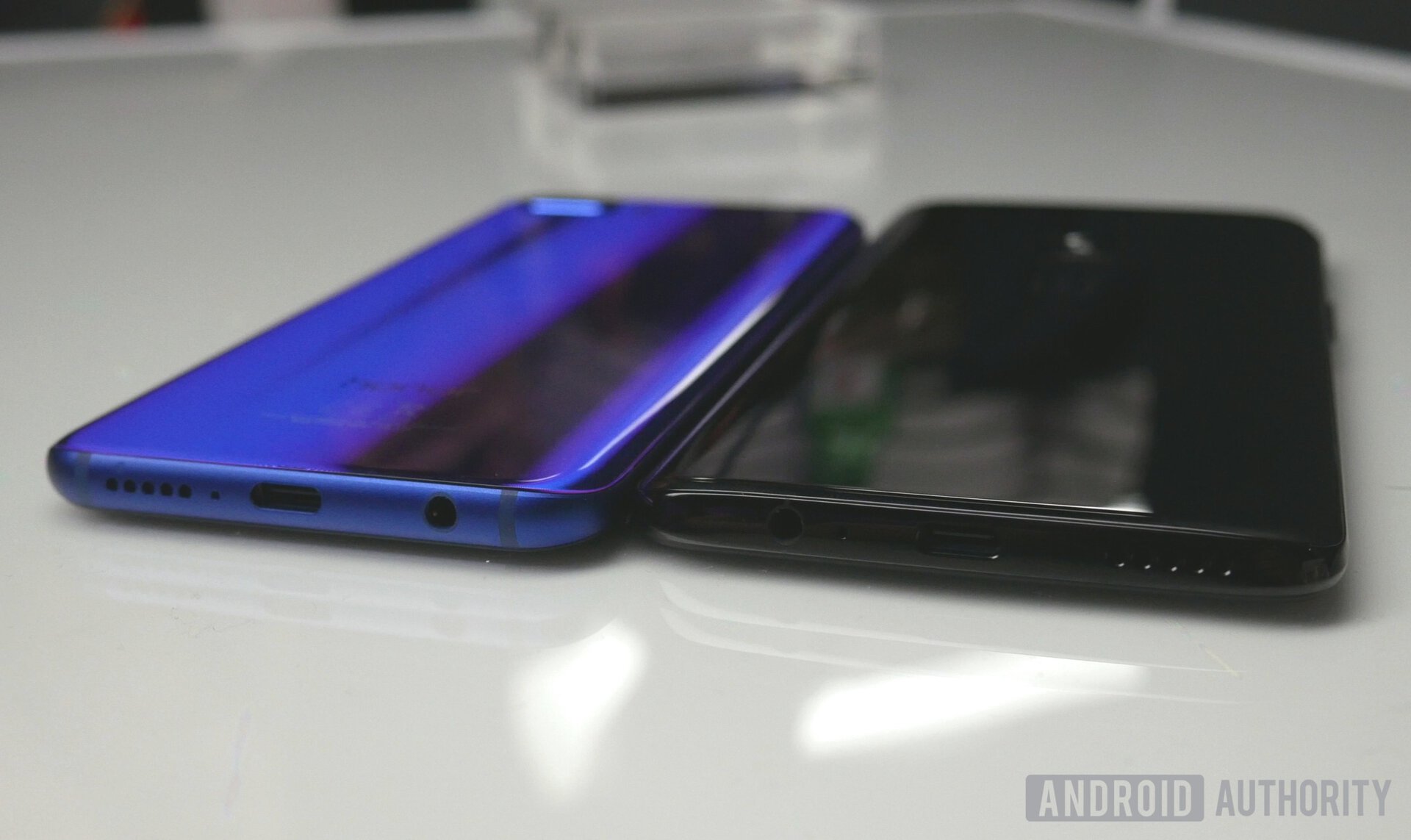
Every phone in this comparison features at least a 3,000mAh battery and fast charge capabilities. If wires are not your thing, the G7 ThinQ and Galaxy S9 Plus also offer wireless charging.
The HONOR 10 and OnePlus 6 might have respectably-sized batteries, but their lack of IP ratings make them weird outliers. Even mid-range smartphones like the Moto X4 feature some sort of IP rating, so it is odd to see two “affordable flagships” not rated for dust and water resistance.
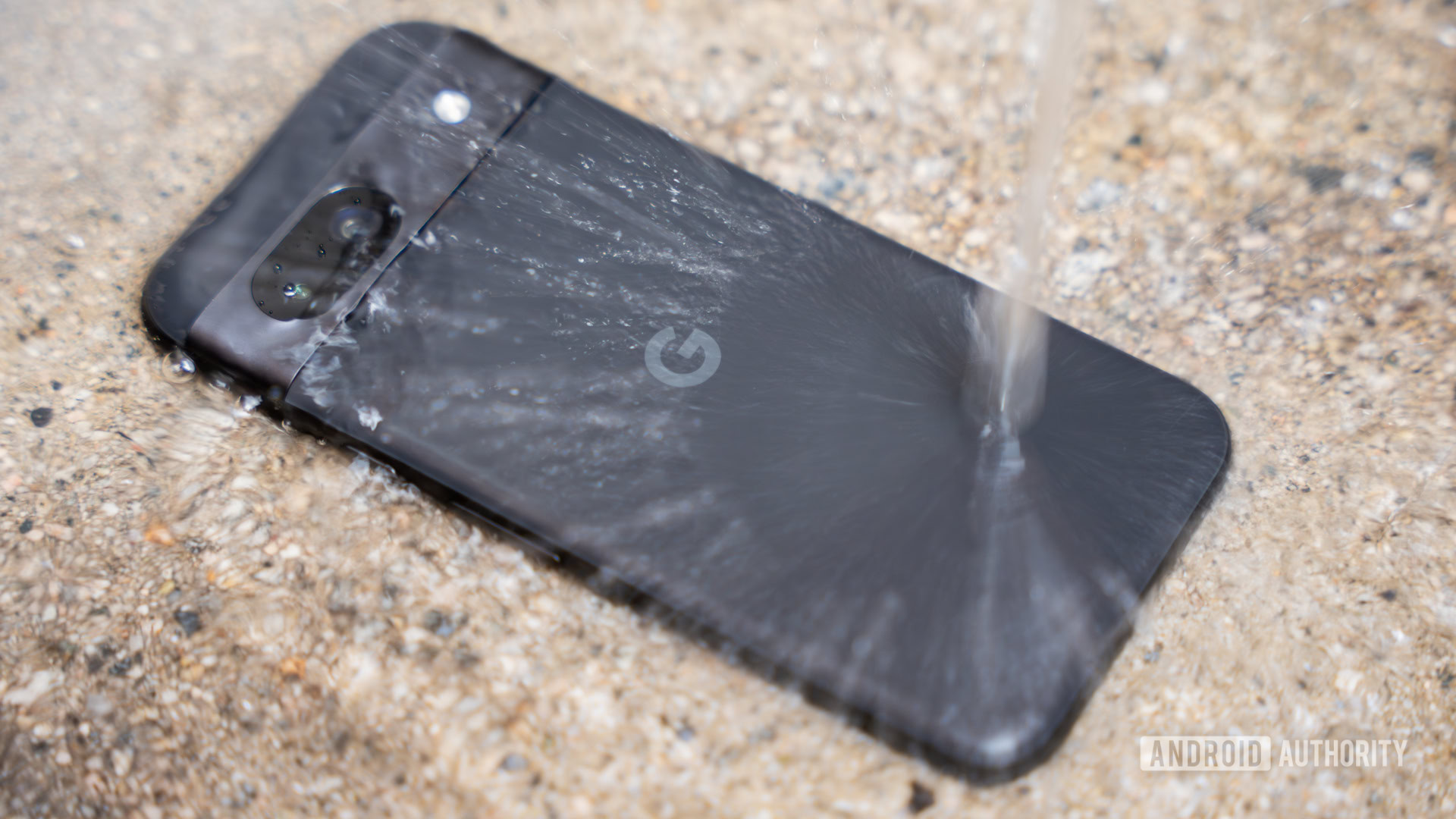
According to OnePlus, the company tested the OnePlus 6 to make sure it can survive a drop in a puddle or a walk in the rain. Also, the HONOR 10 might be able to survive similar scenarios. Even so, a lack of an IP rating means you should be a bit more careful about where you use the phones.
Finally, the HONOR 10, OnePlus 6, G7 ThinQ, Galaxy S9 Plus, and Pixel 2 XL all run Android Oreo out of the box. The HONOR 10 features the polarizing EMUI software skin, while the OnePlus 6 keeps things simple with OxygenOS.
The G7 ThinQ and Galaxy S9 Plus also feature scaled-back software skins compared to their predecessors, while the Pixel 2 XL offers the cleanest version of Android around.
No longer does spending less than $600 feel like you get a below-average smartphone experience.
As with the notch, the software might make or break your buying decision. If you want up-to-date software, then stop here and get the Pixel 2 XL. If you do not mind slower updates in exchange for more features, the OnePlus 6, G7 ThinQ, and Galaxy S9 Plus fit the bill.
If you want more of a hybrid between iOS and Android, which still manages to be speedy, the HONOR 10 is for you.
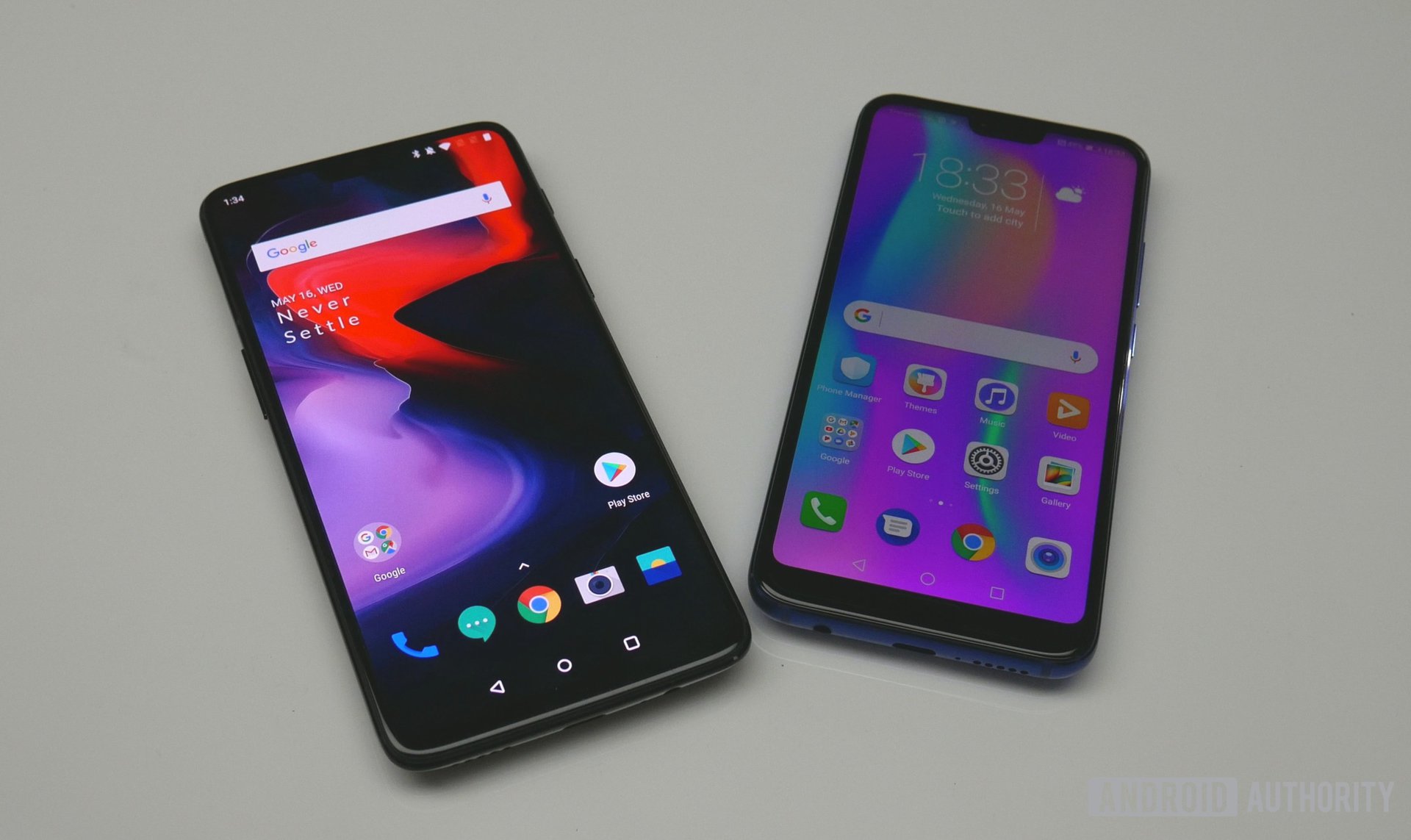
Regardless of which phone you get, we have come a long way when it comes to phones like the HONOR 10 and OnePlus 6. No longer does spending less than $600 mean that you get a below-average experience.
The HONOR 10 and OnePlus 6 more than hold their own against more expensive flagships. What do you think? If given the chance, which phone would you buy?
Other comparisons from our VS section:
- HUAWEI P20 vs P20 Pro: Do you need the triple camera?
- Google Pixel 2 XL vs Pixel XL
- OnePlus 6 vs Samsung Galaxy S9 Plus
- Nokia 7 Plus vs HONOR 10: The top of the middle
- OnePlus 6 vs Apple iPhone X: can David take on Goliath?
- HONOR 10 vs OnePlus 6: Game, set, match
- Samsung Galaxy S9 vs HUAWEI Mate 10 Pro
- OnePlus 6 vs Samsung Galaxy S9 Plus
Thank you for being part of our community. Read our Comment Policy before posting.